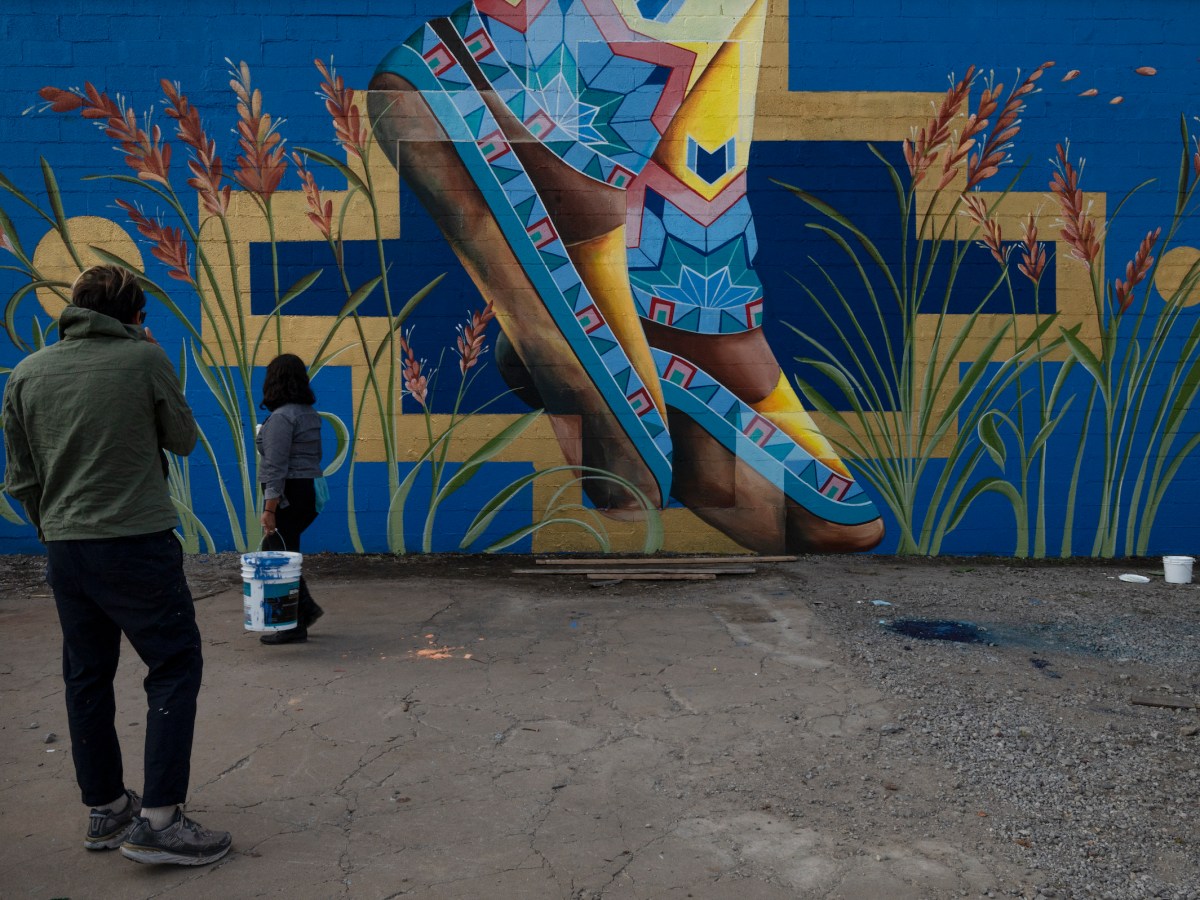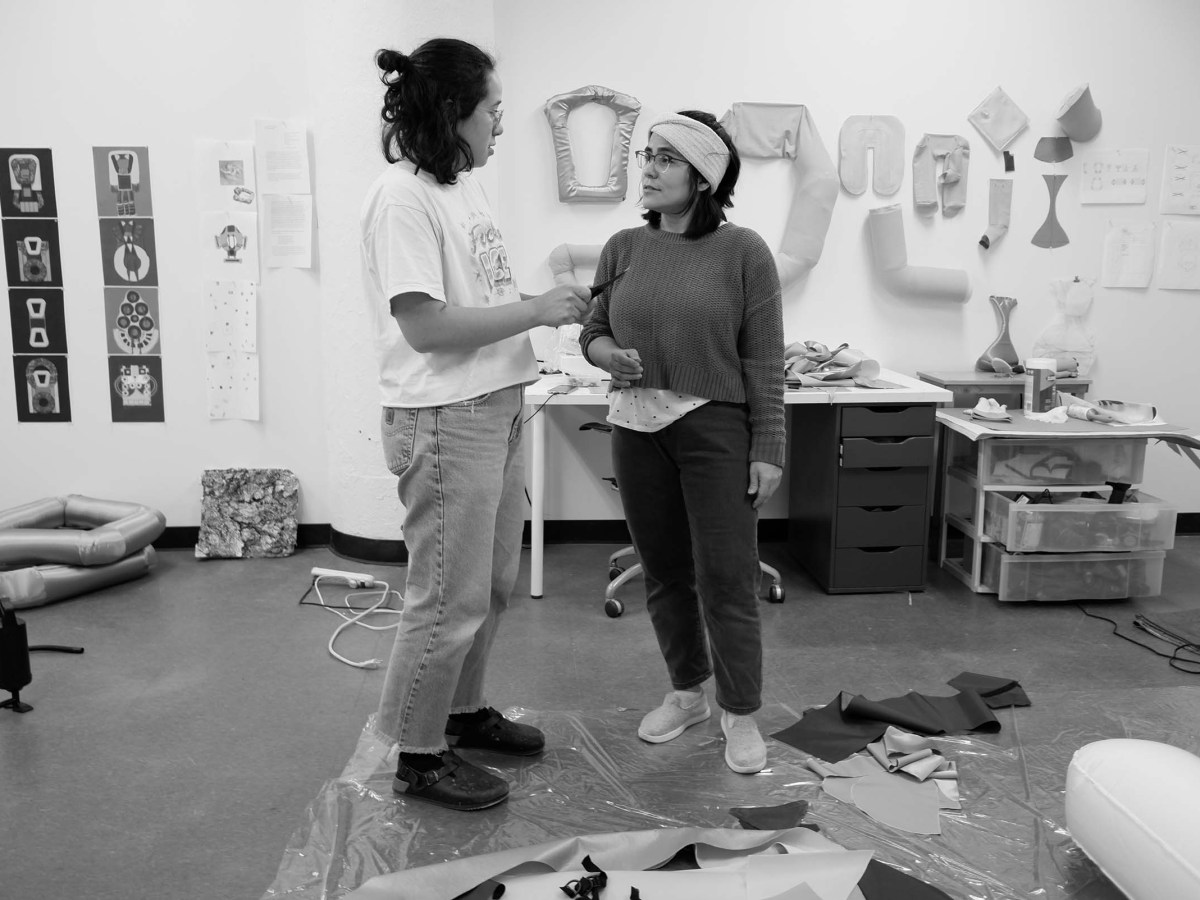ALBUQUERQUE — Twenty-one vinyl records played simultaneously over three days last November, during the opening weekend of The Mountains Wore Down to the Valleys, a semi-durational sonic and visual art installation created by artists Marisa Demarco and Adri De La Cruz. The needles bore deeper and deeper into their locked etched grooves, distorting (though the term is debatable) Demarco’s urban sound compositions. Because the vinyl was etched, not pressed, the records’ number of plays were finite. Dust formed on the surface, evidence of things breaking down and, eventually, stopping.
Today, each record sits motionless in its respective player, on a pedestal custom-made by De La Cruz, arranged in a single-file line down the center of a wide corridor leading to a small gallery. The varying heights of the pedestals create a ridgeline-like effect that mirrors that of the Sandia Mountains as seen from Albuquerque. Many of us in this high desert city orient ourselves by those mountains or the Bosque, the woods that border the Rio Grande, some welcoming the chance to wander through either.
It’s easy to miss things the first time ’round, so I appreciated the structure of the show, which encourages repeat visits, not only to witness how the sounds (and silences) of the installation changed, but to consider other components in relation to change and the passing of time, a lineage of sorts.
Some of the records have labels with text comprising a poem that reads, in part, “When our scale of time is small / Just those days, these hours … With so much loss / But even those peaks will wear down / the wind and rain and sun.” The few records without labels act as line breaks, maybe even infinite pauses, between the phrases. The scale of the pedestals facilitates visitors stopping at each and bowing at the waist to get closer, to hear more clearly, not unlike bending down to see a flower or bug or some other curiosity while hiking in the mountains or walking along the water — in essence, to understand. Inevitably, I read much of the work in light of the COVID-19 pandemic, and questions of proximity.

The small gallery houses vinyl records — absent during the opening but now framed and hung on the walls — onto which De La Cruz hand-etched portraits of their family members. One record player, in the center of the room, plays the artist’s recorded interviews with those family members, two chairs and headphones beckoning visitors to spend time listening to the stories. These informal oral histories, while specific to the artist’s family, speak to broader shared experiences — the struggle to survive, life lessons, sadness, joy, love, resilience. Framed by the room’s far opening, small plaques, stacked vertically on the wall, display the poem from the records, offering another chance to consider how experiences and memories are communicated, how connections are formed, and how relationships change.
A deep royal blue effectively grounds the installation, applied to the walls, pedestals, frames, and chair cushions, as if to make visible the swells of emotions, the hue of sleepless nights, the feel of watching the sky through a window — to fill the otherwise seemingly empty spaces, for the record.



The Mountains Wore Down to the Valleys continues at the National Hispanic Cultural Center (1701 4th Street, Albuquerque) through April 23. The exhibition was curated by Jadira Gurulé.















